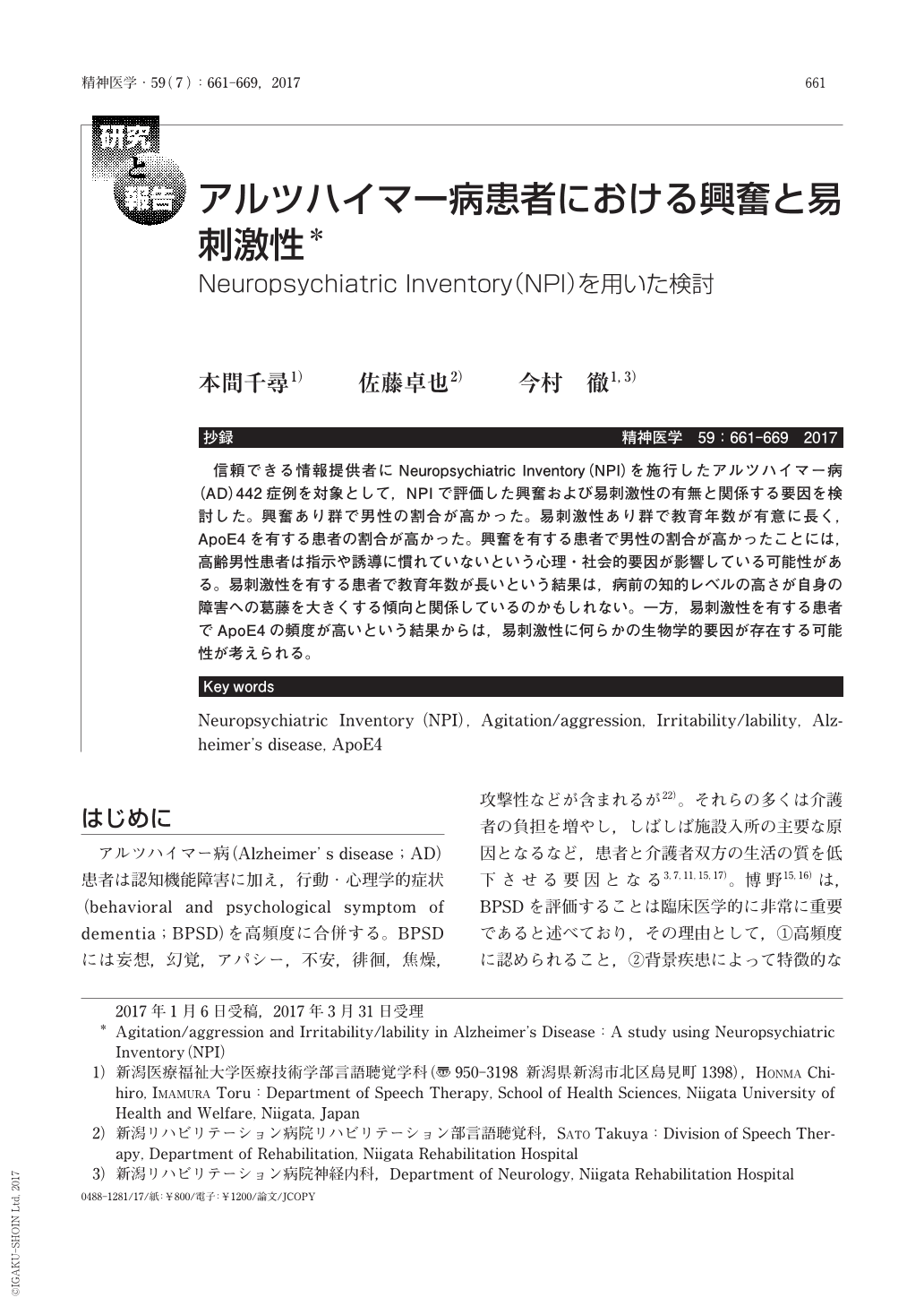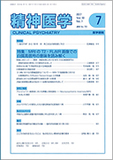Japanese
English
- 有料閲覧
- Abstract 文献概要
- 1ページ目 Look Inside
- 参考文献 Reference
抄録
信頼できる情報提供者にNeuropsychiatric Inventory(NPI)を施行したアルツハイマー病(AD)442症例を対象として,NPIで評価した興奮および易刺激性の有無と関係する要因を検討した。興奮あり群で男性の割合が高かった。易刺激性あり群で教育年数が有意に長く,ApoE4を有する患者の割合が高かった。興奮を有する患者で男性の割合が高かったことには,高齢男性患者は指示や誘導に慣れていないという心理・社会的要因が影響している可能性がある。易刺激性を有する患者で教育年数が長いという結果は,病前の知的レベルの高さが自身の障害への葛藤を大きくする傾向と関係しているのかもしれない。一方,易刺激性を有する患者でApoE4の頻度が高いという結果からは,易刺激性に何らかの生物学的要因が存在する可能性が考えられる。
Objective:To investigate the factors that relate to the presence of agitation/aggression and irritability/lability assessed on the Neuropsychiatric Inventory(NPI)in patients with Alzheimer's disease(AD). Subjects:442 patients who had a diagnosis of AD and whose reliable informants underwent the NPI at the first visit of our hospital. Methods:We examined all subjects on digit spans, the Mini-Mental State Examination(MMSE), and Alzheimer's Disease Assessment Scale(ADAS). In some subjects, we assessed their overall dementia severity on the Clinical Dementia Rating(CDR), and determined their apolipoprotein E(ApoE)phenotypes. We evaluated the relationships between various characteristics of subjects and the presence of agitation and irritability assessed on the NPI. Results:Subjects with agitation had significantly higher CDR severity, a higher ratio of men, and higher frequencies of delusions, anxiety, elation/euphoria, disinhibition, and irritability/lability. Subjects with irritability had significantly higher educational attainment, a longer duration of disease, a higher rate of patients with ApoE4, and higher frequencies of delusions, agitation/aggression, depression/dysphoria, anxiety, apathy/indifference, and disinhibition. Discussion:In subjects with agitation, the higher ratio of men may be attributed to the psychosocial factor that elderly men are not accustomed to being directed or led. In subjects with irritability, higher educational attainment may be related to the tendency that patients with a higher premorbid level of intelligence feel more struggle over their disability. The higher frequency of ApoE4 in subjects with irritability indicates the possibility that there are some biological factors related to the occurrence of irritability.

Copyright © 2017, Igaku-Shoin Ltd. All rights reserved.


